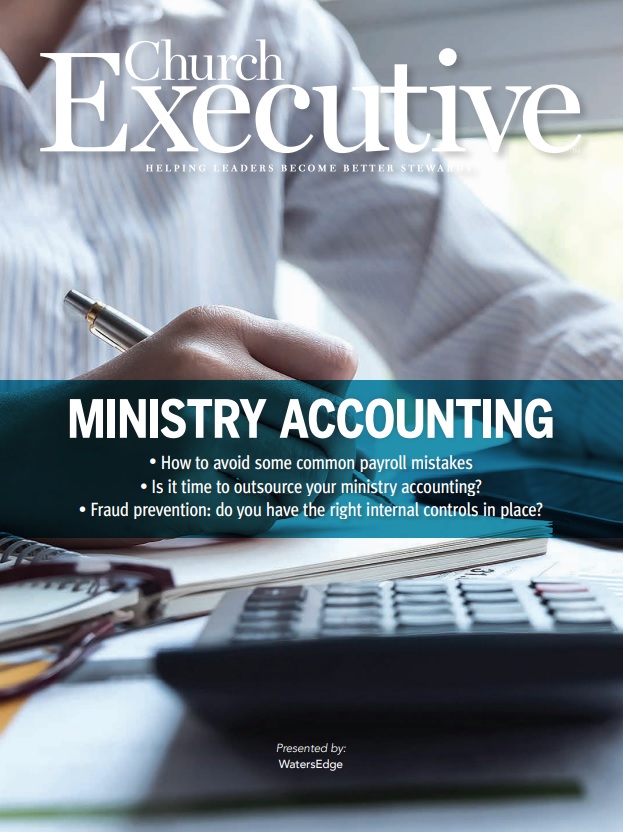
Church Executive: Are churches typically easy targets for fraud?
Sarah Barham: Yes, because typically one person is responsible for completing all financial responsibilities from beginning to end. This means one person opens the mail to review invoices, sets up vendors in the accounting software, writes the checks, reconciles the bank accounts, and produces financial reports.
CE: Generally, about what percentage of churches are taking adequate precautions — by way of their internal controls — to prevent against fraud right now?
Barham: I would say about 20%-25% are taking adequate precautions with internal controls established and following those controls. A lot of times, we’ll see that internal controls are in place but not being applied to the daily aspects of church finances.
CE: Is there a difference between theft, fraud and embezzlement? What exactly are we referring to when we say “fraud” in this context?
Barham: There is a difference. Theft is the act of taking something that doesn’t belong to you. Fraud and embezzlement are forms of theft. Fraud is theft by deception — in other words, convincing others you aren’t doing anything wrong or falsifying documentation to cover something up. Embezzlement is using church assets for personal gain.
CE: Is one of these offenses more common in churches?

Barham: Based on what I’ve researched and documented during church financial assessments, embezzlement is typically the most common. With little to no internal controls, it can be easy to manipulate records through accounting if one person is responsible for everything and has no direct oversight.
CE: Among the church clients you’ve worked with, what are some common red flags that indicated they were being defrauded?
Barham: Multiple credit card transactions in a single day at the local gas station, which were later determined to have been made by a staff member.
Also, purchasing items for personal gain using the church credit card. For example, a colleague experienced a pastor who mentioned his contribution statement for years was consistently low for the amount of donations he knew he contributed to the church. It was discovered that the volunteer counting and depositing the money had opened a local bank account under a similar name of the church and began depositing some of the offering checks into that account instead of the church’s established bank account.
CE: How can a church best uncover any weaknesses in its existing internal controls?
Barham: A good start would be to have an external assessment of church processes and internal controls performed and / or a church policy that requires some kind of review.
CE: What’s a church leader’s first step in getting this done?
Barham: Of course, they can reach out to us at WatersEdge. Also, there typically are local CPA firms willing to perform those assessments. But the church needs to be careful to select someone who’s familiar with church processing and accounting.
CE: In your experience, what internal controls have proven most effective?
Barham: First, separation of responsibility. Having separate people open mail to review invoices, set up vendors in the software, write checks, and so on.
Second: limited access to online bank accounts. Accounting staff and / or the church treasurer should have this access. There’s no need for all staff to have it.
Third, I’d suggest having two signors on checks. One of them should be someone other than the person preparing the checks. We’ve seen this be a staff member and treasurer and / or finance committee members.
Next, I’d avoid pre-signed blank check stock. Oftentimes, this is kept on hand for convenience. Don’t.
Church leaders should enlist multiple counters for the offering. This goes without explanation.
Finally, there should be a finance committee in place that regularly reviews reports. The church finance committee I sat on met monthly to review financials and ask questions about finances. We signed checks during that time but also signed on Sundays and / or Wednesdays when we were at the church. It would be ideal to have business-minded church members as part of this committee.
— Reporting by RaeAnn Slaybaugh


